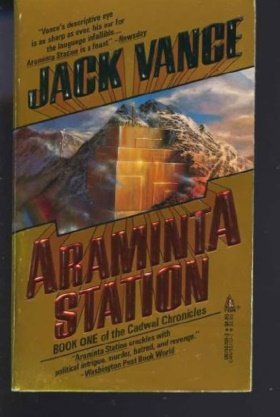Attila looked surprised. ‘Geza? Dead? That’s nothing to do with us. Really. Nobody is supposed to be dead.’
‘Well, he is.’
‘That’s a shame. He was a good guy. Meanwhile, I need to take care of these two jokers. They were supposed to bring you in for questioning, but I never thought that was very likely. Still, I thought I would drop by and check, just in case.’ He smiled. ‘Lucky I did, eh? See, Tazi, I still have your back.’
‘Attila, what the fuck is going on?’
Attila walked nearer to Balthazar, and spoke quietly in his ear. ‘Nationwide, Tazi, that’s what’s going on.’ He looked at Balthazar as he stepped back. ‘I told you to be careful. Where are their guns?’
Balthazar gestured under the curve of the staircase. Attila walked over and quickly located the two Glocks on the floor in the corner.
He picked them up and nodded at Balthazar as he walked straight to the SUV. ‘And a disarm as well. Nice work, Tazi. Remember, my offer still stands.’
Balthazar watched as the men in T-shirts guided the two Serbs into the back of the black SUV, their hands still bound in front of them. He exhaled hard, ignored the anger he felt. There was nothing to be done. The tall man glared at Balthazar, his face smeared with dirt and oil, spitting insults in Serbian. Attila got in the front seat and the vehicle pulled away.
Half a minute or so later, once Attila’s vehicle had disappeared from view, the police car started moving down Nemet Street. It stopped on the next corner, by Rakoczi Square. There were three people inside, he could see: two forensics officers dressed in white suits and the driver, an overweight man in his fifties, who was still talking on his radio.
The driver looked familiar as he levered himself out of the car. His name was Istvan Sandor, aka Pisti bacsi. Pisti was the custody sergeant at the District VIII station. It was many years since he had been seen on the streets, not least because his substantial pot belly made it difficult for him to run after or chase any a suspect. Back in his days as a beat cop Balthazar had sent so many local criminals to him that Pisti had asked him to slow down a bit as the system could not cope.
Pisti had worked at the local station for almost twenty-five years and nobody knew District VIII like he did. Pisti had been a helpful mentor to Balthazar and had several times slapped down other officers for off-colour remarks about Gypsies. This may have been because Pisti was friendly with Balthazar’s brother Gaspar. The two men often dined together at one of Budapest’s high-end restaurants, although Balthazar had been careful to never enquire precisely how that relationship worked.
So why, Balthazar wondered, was Pisti away from his cosy office on a freezing, filthy night like this? Unless Pisti had asked for a transfer to the street, which was unlikely, the answer, Balthazar realised as Pisti approached, was not likely to be good news. Pisti wheezed as he stood still for a moment, his winter jacket straining at the zip.
Balthazar said, ‘You saw what happened. Two guys shot at me. Attila Ungar took them away. In plain sight. Where were you? Why didn’t you do something?’
Pisti shrugged. ‘We got here too late. Sorry.’
‘No you didn’t. You were parked at the end of the road, watching the show. Who’s running law enforcement here? Us or Attila?’
Pisti took Balthazar’s arm in his right hand as he spoke. ‘Nyugi, Tazi, nyugi. Take it easy and listen to me for a moment.’
Balthazar stopped talking, feeling Pisti’s hand on his bicep, staring at him with his red-rimmed eyes. Something bad was coming, Balthazar could sense it.
Pisti said, ‘The bosses want you in at midday tomorrow. Someone will call you soon with a formal request.’
‘Why?’
Pisti looked up at the top floor of the building, his hand still resting on Balthazar’s arm, then back at Balthazar. ‘There’s a dead man in there, Tazi. They’ve got footage of you on Klauzal Square, walking towards Geza Kovacs. You were one of the last people to have any interaction with him. You called in earlier saying you were in the area and that you might be calling us in later. Now he turns up dead. How does that look?’
‘Like I anticipated a crime might be committed and warned the local police station so it could deal with it?’ Balthazar paused for a moment. He had not called the killing in – his phone was broken. ‘How do you know that he’s dead, anyway?’
Pisti blustered. ‘It doesn’t matter. We just know. Look, I believe you, Tazi. But there are other ways to look at this.’
‘Do they think I killed them? Because I didn’t.’
Pisti said, ‘I have no idea what they think. But these are strange times, Tazi. I’ve got your back, as much as I can, that’s why I am here, instead of sitting in my nice warm office. But not everyone is your friend. Bring a lawyer with you when you come in tomorrow.’
Balthazar started with surprise. ‘A lawyer? What for? Do they want to charge me?’
‘I don’t know.’
‘Am I in danger?’
‘Two Serbian gunmen have already opened fire on you. What do you think? That was a warning.’
Pisti squeezed Balthazar’s arm harder, spoke sotto voce. ‘Drop this Israeli business and there will be no problem tomorrow. This missing historian will turn up sooner or later. The brass wanted you brought in at dawn with a raid and everything. I pulled in a favour to get you midday under your own steam. You can decide overnight. If you don’t come in…’ he said, his voice trailing away.
‘If I don’t, then what?’
‘You will be arrested on suspicion of murder.’ Pisti let go of Balthazar’s arm, moved closer and to the side, his breath warm on Balthazar’s ear as he spoke even more softly. ‘This is me now, not the police, with some friendly advice. Don’t come into the station tomorrow. Don’t go to police headquarters, either.’
He stepped back, resumed his official voice. ‘Are we clear now, Detective Kovacs?’
Balthazar nodded. ‘Completely.’
THIRTY
Hollan Erno Street, 7.40 p.m.
Zsuzsa stared at the ancient Nokia handset lying in the centre of her coffee table.
It shook as it rang, skittering as though it were alive, but eventually the noise ended, without her picking it up. The handset had just arrived by motorcycle courier. The courier had come to her front door, asked Zsuzsa her name and when she said it, had thrust a small padded envelope into her hand, said, ‘This is for you’, wished her a pleasant evening and left.
The telephone had started ringing a few minutes after she unpacked it. She had been so taken aback by the delivery she had not thought to ask the courier to wait while she opened the envelope, and ask him any of the questions that were now buzzing around her mind.
Who had sent her this museum piece and why, and what was this about? Perhaps this was an elaborate threat. She might even be in danger, she thought, various half-formed scenarios flitting around her mind. She had been lurking at the scene of a shooting, had been observed by the police, asked questions of a suspicious neighbour. Who knew what was really going on in this country?
Zsuzsa picked up the handset and checked the call list. There was one listed, from an unknown number. She looked at the contacts list: it was empty.
She put the Nokia back down on the table, feeling unsettled, and stared at the framed 1970s Hungarian Railways travel poster on the facing wall. It showed a tranquil, blue Lake Balaton under a yellow summer sun. Holidays, warm weather, perhaps some male company, all that seemed like another world at the moment.
The most immediate question was how she was going to pay her rent. Roland Horvath had called her an hour or so ago, and this time she picked up. He told her not to come back in and that she would be soon in receipt of a letter from the publishers’ lawyers, with several detailed questions about her action and movements over the previous few days. She would receive the bare legal minimum of redundancy, which meant, in effect, nothing. All the former employees of 555.hu who had survived the purge had been re-employed by a new company, only formed a few weeks ago, so her previous record of service counted for nothing.
Still, she had made it to the capital, found a place to live and she was a working journalist. She was young, smart and good at her job. She would get through this. Zsuzsa looked around her small studio flat, liking what she saw. The main room served as both bedroom and lounge. One part had been converted to a galley kitchen and another walled off as a bathroom with a stand-up shower. This was the first place she had rented in her own name, where she could live and decorate as she liked.
The flat was sparsely furnished, with a sofa and bed from Ikea and an art deco-style coffee table she had found on the street in last year’s lomtalanitas, or throwing-out day. The armchair she had bought at a nearby antique shop. The best part was the wide balcony that looked over the pedestrianised street.
She heard the sound of a mobile ringtone and looked down suddenly at the Nokia. The ringing was in a nearby flat, she realised.
She felt jittery, looked back down at the Nokia, unsure if she wanted it to ring again or not. Meanwhile, rent. She had enough in the bank to keep going for a couple of months, but that was all. Decent jobs in Hungary’s shrinking media landscape were scarce, properly paid ones even rarer. She could, she supposed, take her Nationwide story to newsline.hu. But newsline.hu was running crowdfunding appeals to pay for its staff and premises, so that was no financial solution.
Lately she had been thinking about writing for one of the big western newspapers, like The Times or The Guardian. The Times’ correspondent had recently moved to Berlin, so they needed someone in Budapest. But the first thing the editors would ask is what stories she had to offer. What she had on Nationwide would be huge news in Hungary, but was a bit local for the international press. Although the Bardossy family connection did give the story a decent lift. Or maybe she needed a different, bigger story. A decent interview with Reka would be very sellable, she knew. And Eniko had promised her one, once all this was over – whatever this was.
She glanced at her watch. She had no other plans for the evening other than watching the evening news and looking through the notes she had downloaded about her Nationwide story from her former editor’s computer. Maybe there was something buried there, something she had not noticed yet that could boost the story.
Or maybe this strange phone could get a her a coveted stringer’s position with one of the big foreign papers. For a moment she smiled to herself. A minute ago the Nokia was a potential threat. Now it might be the catalyst of a new career. Whatever the mobile represented, whoever had sent it needed to call again so she could find out.
A minute later the ringtone sounded.























